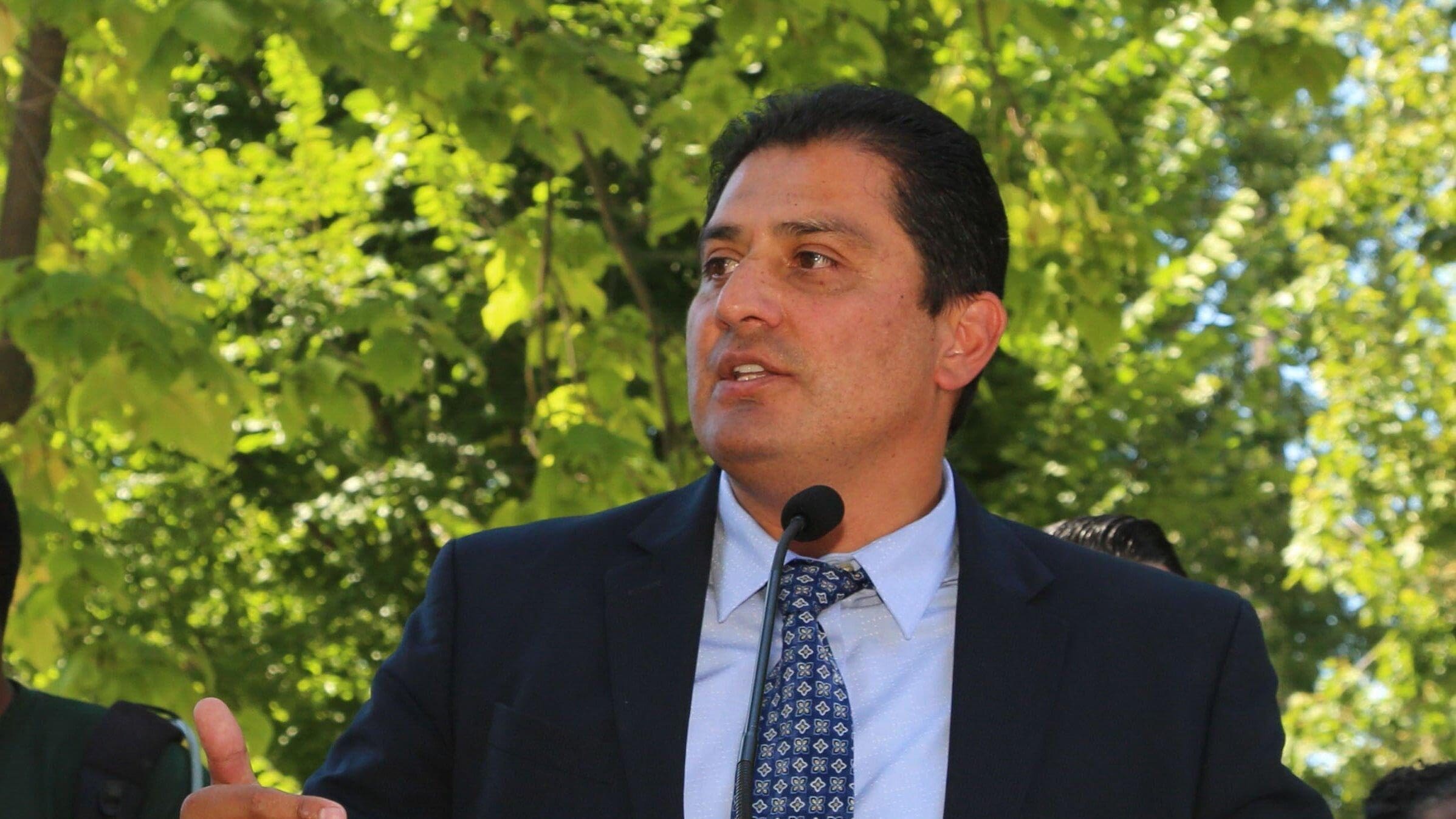Michelson Center for Public Policy co-sponsored state Senator Ben Hueso’s bill to ease the pathway to success and reduce recidivism, smooth the parole transfer process, and give formerly incarcerated individuals more opportunities to start a new life.

Senator Ben Hueso, (D-San Diego) at a speaking engagement.
Removing Barriers for Those on Parole
Many formerly incarcerated people know firsthand that while being on parole means they’re no longer behind bars, it does not mean they will remain free.
To be in compliance, they must maintain employment, have stable housing, participate in job training, life skills programs or attend a postsecondary institution. And usually they are confined to the county of their legal residence.
The restrictions can lead many people on parole to miss out on opportunities for schooling, employment or housing. Violating the rules often leads back to prison.
To ease the pathway to success and reduce recidivism, Senator Ben Hueso (D-San Diego) introduced Senate Bill 990 this month. The bill would smooth the parole transfer process and give formerly incarcerated individuals more opportunities to start a new life.
“It is imperative that we revisit outdated practices that no longer work,” said Gary K Michelson, founder of Michelson 20MM Foundation and the Michelson Center for Public Policy. “We need to do a better job providing this vulnerable population with the ability to access the critical support and opportunities needed in order to be successful and not return to prison.”
Michelson Center for Public Policy co-sponsored the bill along with Root & Rebound, and the Underground Scholars Initiative.
Last year, California passed SB 416 to protect incarcerated students from predatory institutions and prioritize education over work assignments.
“By allowing formerly-incarcerated individuals to be released to the county in which they have earned access to educational or employment opportunities, we can ensure that investments in their futures prove fruitful for them, their families, and all of California.”
—Senator Ben Hueso (D-San Diego)
SB 990 goes a step further by taking steps to safeguard education and rehabilitation upon release, allowing those on parole to live, work or get an education outside of the county where they previously resided.
“In recent years, California has made great strides in reducing recidivism among formerly-incarcerated individuals,” said Sen. Hueso, who also introduced SB 416. “SB 990 expands on this important work by specifically targeting those individuals who have seized the educational and vocational opportunities available to them while in prison, and removing some of the barriers that remain upon being paroled so they have better chances to successfully reintegrate.
“By allowing formerly-incarcerated individuals to be released to the county in which they have earned access to educational or employment opportunities, we can ensure that investments in their futures prove fruitful for them, their families, and all of California.”
SB 990 seeks to amend the California Penal Code to provide a more seamless transition for those on parole by allowing them to be released outside of their confined geographic region to a location where there is an opportunity for higher education or vocational training program, job prospects, housing options, familial support, or a treatment facility.
“SB 990 stands to benefit thousands of system-impacted individuals and their families. Although parole was intended to help with the transition from incarceration, it has instead become an extension of imprisonment and set many of our clients and other formerly incarcerated people up for failure,” says Root & Rebound’s Executive Director Carmen Garcia. “SB 990 will help formerly incarcerated individuals and their families by opening up avenues of opportunities, once prohibited based purely on bureaucratic restrictions. The bill is just one more step in the process of fixing the inequities created by the mass incarceration system.”
